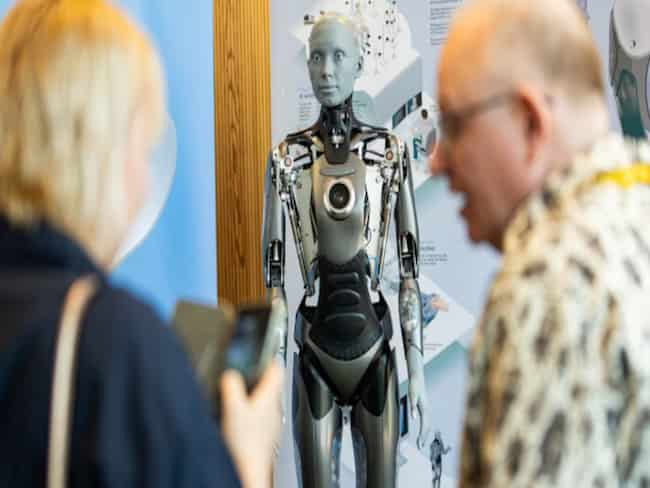Copyrights Can’t Be Given To Art Made By AI, Says A US Court:
A U.S. court in Washington, D.C., has decided that a piece of art made by artificial intelligence without any help from a person cannot be protected by copyright.
Copyrights can only be given to works written by people, said U.S. District Judge Beryl Howell on Friday, confirming that the Copyright Office was right to turn down Stephen Thaler’s application for his DABUS system.
Thaler lost bids for U.S. patents on ideas he said were made by DABUS, which stands for Device for the Autonomous Bootstrapping of Unified Sentience. The ruling on Friday is the result of those losses.
Thaler Has Also Tried To Get Rights In Other Countries Based On DABUS:
Thaler has also tried to get rights based on DABUS in other countries, like the UK, South Africa, Australia, as well as Saudi Arabia, but he hasn’t had much luck.
Thaler’s lawyer, Ryan Abbott, said upon Monday that he as well as his client are deeply dissatisfied with the ruling and will appeal. The Copyright Office stated in a statement upon Monday that it “believes the court made the right decision.”
The rapidly growing area of creative AI has brought up new questions about intellectual property. The Copyright Office also turned down an artist’s request for copyrights on pictures made by the AI system Midjourney, even though the artist said that Midjourney was part of their artistic process.
Thaler Stated That There’s A New Species On Earth, As Well As It’s Called DABUS:
In a recent talk with Wired, he said, “DABUS and every aspect of this intellectual property are not regarding setting legal precedents.” “It’s about setting examples for how people accept things.” He also said, “There was a new species on Earth, as well as it’s called DABUS.”
Thaler has lost so far in his battle over copyright. The Copyright’s Office’s decision from March and the year before was upheld by a US federal court last week. Thaler had tried to get a copyright on an image made by DABUS.
These rulings supported the idea that copyright needs human writing. This rules out DABUS and any “new species” just as much as it rules out animals. And experts aren’t convinced through Thaler’s comments about the AI’s awareness, which makes sense.
As Artists Add AI To Their Tools, We’re Getting Close To New Boundaries In Copyright:
Matthew Sag, a professor of law as well as AI at Emory University, told Wired, “I don’t even know where to start, other than to state that if there exists a sentient AI on the planet right now, it’s definitely not this.”
Several cases have also been made because protected works were used without permission to train creative AI.
“We’re getting close to new frontiers in copyright as artists add AI to their tools,” Howell wrote on Friday. This will bring up “challenging questions” for copyright law. “However, this case is not nearly as hard,” Howell said.
Thaler Asked For A Copyright In 2018 For A Book Called Recent Entrance To Paradise:
Thaler filed for a patent in 2018 for a piece of art called “A Recent Entrance to Paradise,” which he said was made by his AI system without any help from a person. Last year, the office turned down the application, saying that original works must have been made by people in order to be copyrightable.
Thaler went to federal court to question the ruling. He said that human writing is not a clear legal requirement and that allowing AI copyrights would be in accordance with the U.S. Constitution, which says that copyrights are meant to “promote the progress of science as well as the arts.”
Howell agrees with the Copyright Office and said that human writing is a “bedrock requirement of copyright” founded on “centuries of settled understanding.” Thaler has never been scared off by talk like that.
A Law Professor At The University Of Surrey Who Leads A Group Of Intellectual Property Lawyers Called The Artificial Inventor Project:
Ryan Abbott, a professor of law at the University of Surrey who leads a group of IP lawyers called the Artificial Inventor Project, which was started in 2018, is a strong legal friend for him. Its goal, as its name suggests, is to safeguard intellectual property rights for works made by or with the help of AI.
Abbott told Wired, “In the US, inventors are regarded as individuals, but we argued that there was no justification that should be limited to a natural person.” But Abbott cares less about how autonomous an AI is and more about how using a creative AI affects writing, or rather, how it shouldn’t.




